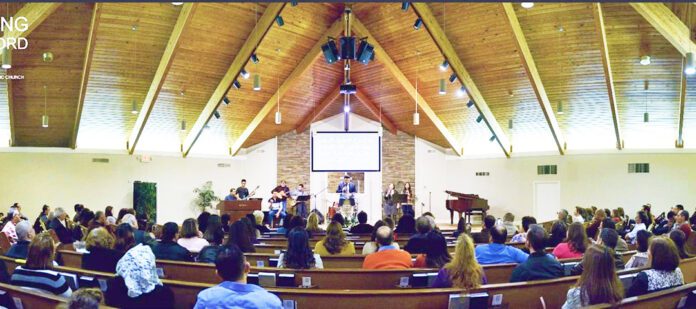By Ashraf Sara
In the gospel, Jesus calls on His followers to multiply by going out, teaching His message and baptizing people. Jesus’ last words on earth focused on kingdom multiplication: “But you shall receive power when the Holy Spirit has come upon you; and you shall be witnesses to me in Jerusalem, and in all Judea and Samaria, and to the end of the earth” (Acts 1:8 NKJV). We believe that if it happened in the Bible, it can happen today.
We should be intentional about multiplying churches because it is the biblical strategy for fulfilling the Great Commission. Church planting is the means through which the Great Commission is fulfilled. When the disciples in Acts went to apply the Great Commission, church planting became the means, the center of their strategy. Disciples who make disciples — who plant churches that plant churches — must become our future norm.
In 2003, after the collapse of the former regime of Saddam, my dad and I planted First Baptist Church in Baghdad. Even though we have experienced God’s mighty work and have seen numerous lives transformed, God was preparing and equipping me for a larger work here in America. Several years later, when I finished my MDiv from the BMA Seminary in Jacksonville, Texas, the Lord called my wife, Jenny and me to plant an Arabic church in America. From a quick study back then, we found out two things. First, Islam is the fastest growing religion in America, and second, most of the Arab population is in the major cities of America. After prayers and fasting, we knew the Lord was leading us to Dallas.
In Dallas, we started a Bible study group at our home, and our goal was to make disciples who make disciples. Shortly after, it grew so quickly that we had to move to a classroom at Northside Baptist Church in Garland. A few weeks later, we were given the fellowship hall, and not too long after that, we started to meet in the main sanctuary. Since then, the Lord has blessed this church plant — Living Word Arabic Church — with numerous confessions and baptisms. On average, every Sunday we have people from eight Arabic countries, and we also have five house groups that meet in the Dallas-Fort Worth metroplex during the week. From day one at the Arabic church in Dallas, we were asking the Lord to send workers for His harvest in the United States, and He did.
In Orlando, Fla., where the Arabic population is booming, the Lord called Adam Batarseh, whom I have known for many years, to plant a seed for church plant among the Arabs. Adam and his wife, Nour started a Bible study group for disciple-making. Their calling was to reach out to the Arabs in their community and love them the way Jesus did. This disciple-making effort resulted in the planting of Arabic Church of Orlando. The Lord was faithful and has provided a facility for them in the chapel of First Baptist Orlando. God also has opened a door for them to start making disciples and planting in Jacksonville, Fla. Adam and Nour recently started to meet on Saturday at his parents’ house in Jacksonville and are in the process of planting an Arabic congregation there.
In California, which contains the highest Arab population in America, we are planting in the most Arab-concentrated city — El Cajon, where the Arabic population represents the majority of the total population of 102,000. Brother Mkram and his wife, Claude are following the example of Jesus by going out to the community and meeting Arabic people from all walks of life. They’re meeting their needs through a community center they started on Main Street to teach ESL and computer skills. Their efforts in living the Great Commission by making disciples are planting Jesus Light of the World Arabic Church.
One other tool we began using in the process of multiplying disciples among the Arabs and supporting the Arabic Church is an Arabic show called “No2tat Saraha” in partnership with Lifeword. “No2tat Saraha,” meaning “Point of Frankness,” is broadcast on social media platforms and Arabic satellite television. The goal of the show is to guide new Arab believers in their walk with God while mixing their Arabic culture and backgrounds with biblical teachings.



